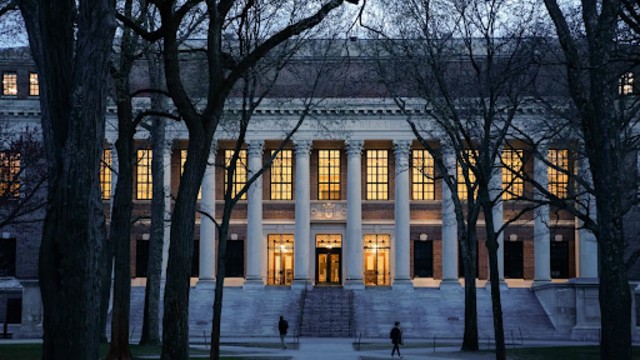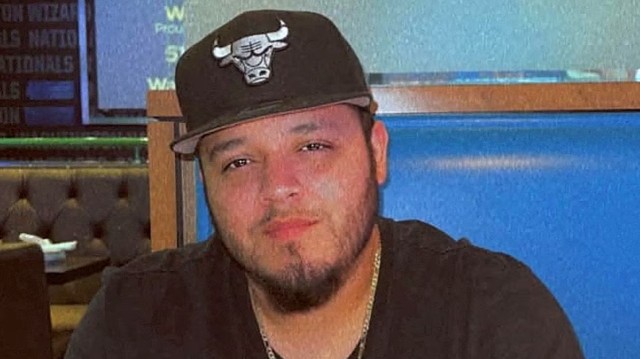
On Wednesday, April 16, 2025, pedestrians were seen walking through Harvard Yard, located on the Harvard University campus in Cambridge, Massachusetts. Bloomberg
Harvard University filed a lawsuit against the Trump administration on Monday, aiming to stop a freeze on over $2.2 billion in federal grants. The dispute started after the university refused to follow the administration’s demands to limit activism on campus.
On April 11, the Trump administration sent a letter to Harvard, outlining a series of reforms it wanted at the university. These included changes to admissions policies, stricter discipline for protesters, and the end of recognition for certain student clubs. The administration also wanted Harvard to audit its views on diversity and ensure that all departments at the university had a range of viewpoints.
The administration argued that Harvard allowed antisemitism to grow unchecked during protests against Israel’s actions in Gaza. However, Harvard President Alan Garber rejected these demands, insisting that the university would not comply. Shortly after, the federal government froze billions of dollars in funding for the university's research programs.
The lawsuit, filed in Boston federal court, criticized the freeze as “arbitrary and capricious” and argued that it violated Harvard’s First Amendment rights. The university pointed out that the funding freeze impacted important research in medicine, science, and technology, all of which have a vital role in American progress. The lawsuit highlighted that the government had failed to explain how the concerns over antisemitism were connected to the research funding being withheld.
Harvard also expressed concern over the potential long-term effects of the freeze. It warned that the suspension of funds could disrupt research programs and harm the broader national interest, as many of these programs contribute to advancements that benefit society.
The Trump administration quickly responded, with White House spokesperson Harrison Fields criticizing Harvard for “enriching their grossly overpaid bureaucrats with taxpayer money.” He called the funding a “privilege” and said that Harvard was not meeting the necessary conditions to continue receiving federal assistance.
The confrontation between Harvard and the Trump administration is part of a larger push by Republicans to force changes at universities, which they argue have become too liberal and hostile to certain viewpoints. The administration has targeted university funding, particularly in areas of scientific research, as a way to exert influence.
The administration’s letter also demanded that Harvard screen international students to identify those who might be “hostile to American values.” The university was told to impose tougher discipline on protesters and to ensure greater political and ideological diversity on campus.
In response to the letter, President Garber stated that Harvard would not comply with the demands, defending the university’s right to uphold the First Amendment. The university also filed this lawsuit as a defense of its autonomy and its commitment to higher education values.
Anurima Bhargava, a Harvard alumna, supported the lawsuit, describing the Trump administration’s actions as an unlawful attack on the university. She emphasized the importance of Harvard's research and innovation in improving lives and criticized the freeze on funding.
The American Council on Education, a nonprofit representing over 1,600 colleges and universities, also praised Harvard for its stand. Ted Mitchell, the council’s president, said that the administration’s actions violated due process and the rule of law.















